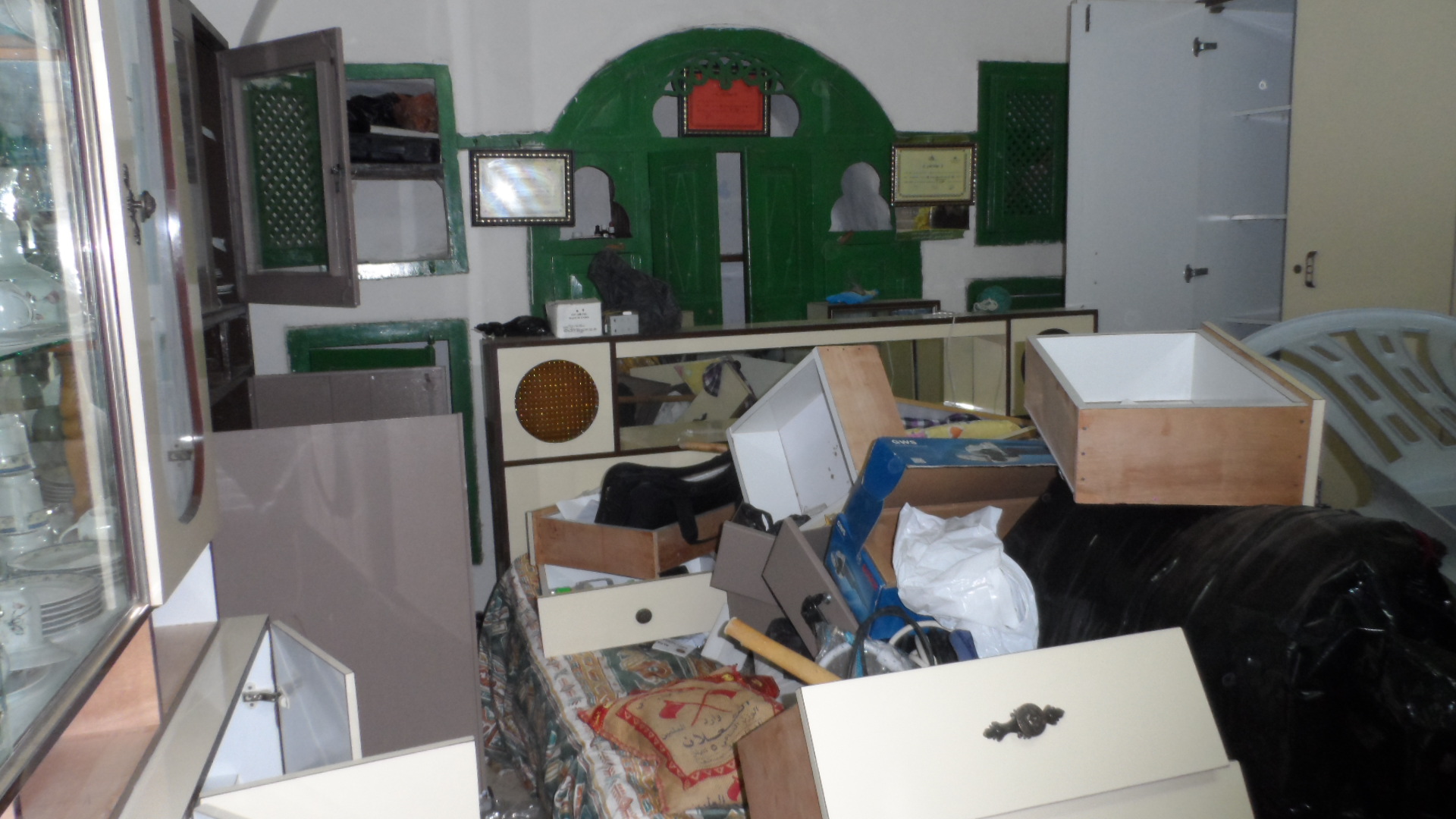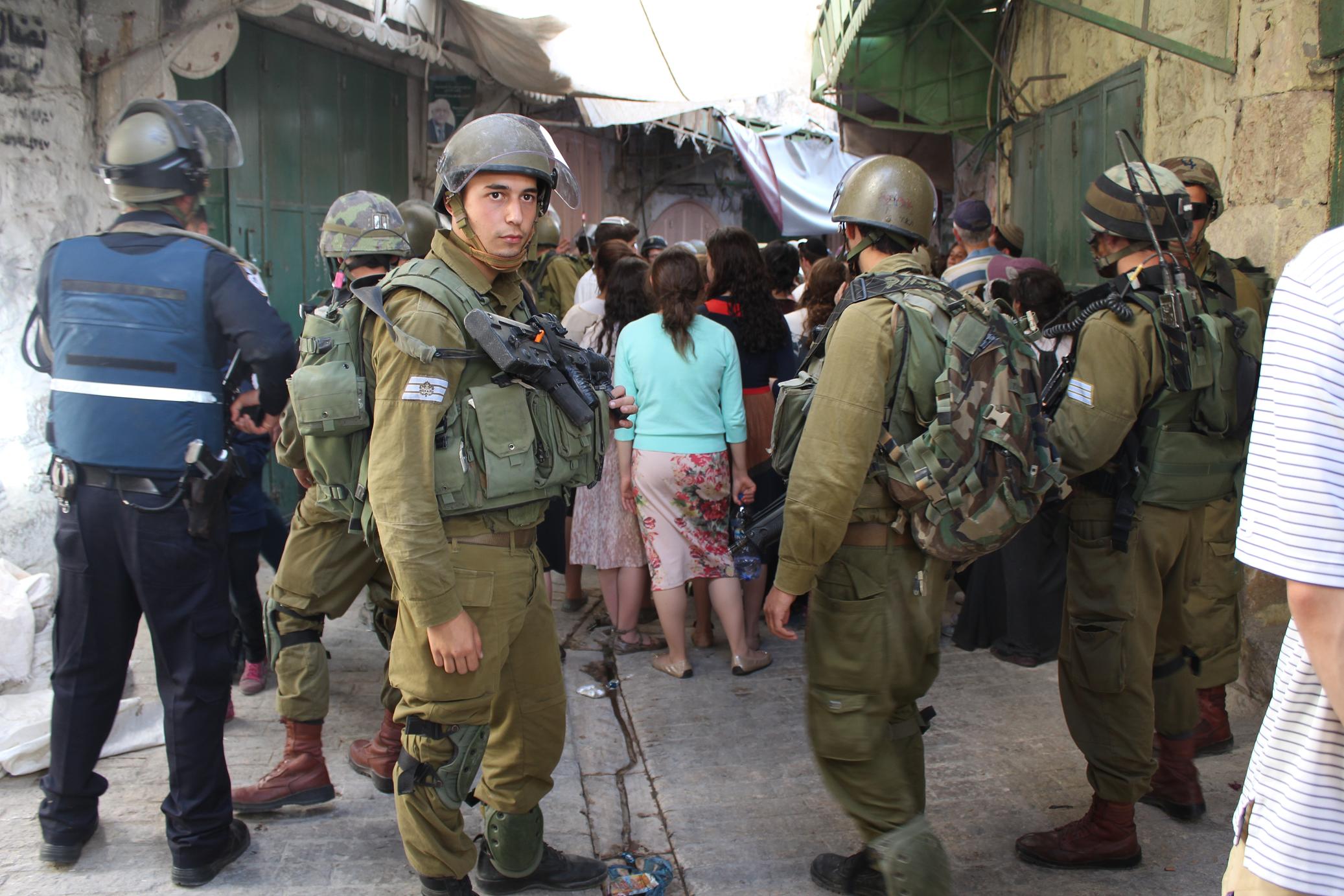-
After the flames, only determination remains in Burin and Madama
3rd June 2013 | International Solidarity Movement, Nablus Team | Burin and Madama, Occupied Palestine On Monday 3rd June, around a dozen settlers from the illegal colony of Yizhar set fire to Palestinian’s fields in the villages of Burin and Madama, destroying at least 50 acres of arable land with olive trees. The settlers were […]
-
Two men arrested and a woman hospitalised in Hebron house raid
3rd June 2013 | International Solidarity Movement, Khalil Team | Hebron, Occupied Palestine A 58 year-old Palestinian man and his 28 year-old son were arrested and his wife hospitalised after Israeli soldiers invaded their home, smashing furniture and breaking electronic goods over a three hour period. Four more houses within the same building were also […]
-
Weekly settler tour invades old Hebron, disrupting lives of Palestinians
2nd June 2013 | International Solidarity Movement, Khalil Team | Hebron, Occupied Palestine On Saturday the 1st June, another group of illegal settlers of Hebron and other settler tourists invaded the old city of Hebron, a Palestinian area which is tightly controlled by the Israeli military. Palestinian homes were invaded by the soldiers and several […]
Action Alert An Nabi Saleh Apartheid Wall Arrests BDS Bethlehem Bil'in Cast Lead Demonstration Denial of Entry Ethnic Cleansing Farmers Gaza Global Actions Hebron House Demolition International law Israeli Army Jerusalem Live Ammunition Nablus Ni'lin Prisoner Ramallah Rubber-coated steel bullets Settlement Settlers Settler violence Tear-Gas Canister Video


